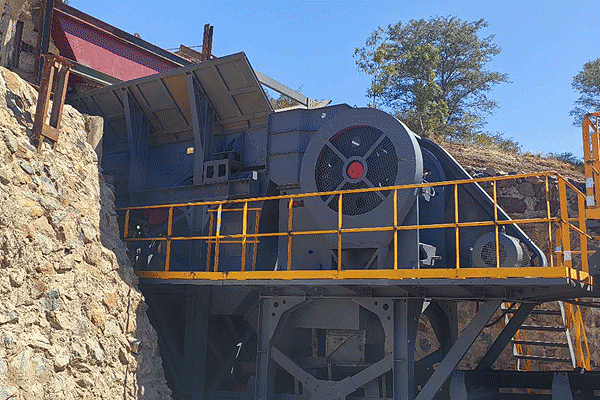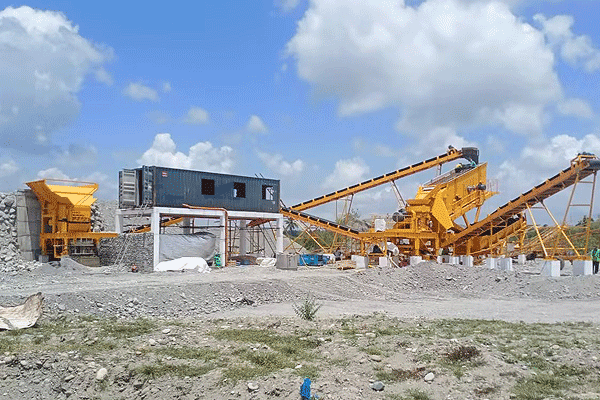Mobile Crusher 80-100 TPH for River Stone: Pricing and Key Considerations
Introduction
Mobile crushers have become indispensable in modern construction and mining operations, offering flexibility and efficiency in processing various materials. For contractors handling river stone—a naturally rounded, abrasive material—selecting a mobile crusher with an output of 80-100 tons per hour (TPH) is crucial for balancing productivity and cost. This article explores pricing factors, technical specifications, operational considerations, and maintenance tips for such equipment without referencing specific brands or manufacturers.
Understanding River Stone Processing Challenges
River stone presents unique challenges due to its hardness, abrasiveness, and variable size distribution. Unlike softer materials like limestone, river stone requires robust crushing mechanisms to prevent excessive wear on components. A mobile crusher rated at 80-100 TPH must be equipped with durable jaws or cones, high-quality bearings, and efficient screening systems to handle these demands.
Key considerations include:
- Feed Size: Ensure the crusher accepts the maximum anticipated stone diameter (typically ≤500mm).
- Abrasion Resistance: Opt for manganese steel or similar wear-resistant materials in crushing chambers.
- Moisture Content: Wet river stone may require additional screening to prevent clogging.
- Crusher liners (replace every 500–1 000 hours)
- Conveyor belts (inspect monthly)
- Bearings (lubricate weekly)
Pricing often reflects these specialized features, with higher-capacity, wear-resistant models commanding premium rates.
Price Range Breakdown
The cost of an 80-100 TPH mobile crusher for river stone varies widely based on configuration, technology, and regional market conditions. Below is a general pricing framework: 
1. Entry-Level Units ($150,000–$250,000): Basic jaw or impact crushers with minimal automation; suitable for small-scale projects but may lack advanced wear protection.
2. Mid-Range Models ($250,000–$400,000): Enhanced durability features (e.g., hydraulic adjustment), better fuel efficiency, and basic telemetry systems.
3. High-End Systems ($400,000–$600,000+): Fully automated setups with intelligent load management, remote monitoring, and superior component longevity.
Additional costs may include shipping ($10,000–$30,000), import duties (varies by country), and optional attachments like prescreeners or dust suppression systems ($15,000–$50,000).
Operational Efficiency Factors
Beyond upfront costs operational expenses significantly impact total ownership value Key metrics include:
Fuel Consumption
Diesel-powered units typically consume 8–12 liters per hour under full load Hybrid or electric models reduce running costs but require infrastructure investments
Maintenance Costs
River stone accelerates wear on:
Budget $20–$50 per operating hour for routine upkeep
Labor Requirements
Automated systems reduce manpower needs but skilled operators are essential to optimize settings for varying stone sizes Training costs should be factored into long-term budgets
Market Trends Influencing Pricing
Several industry trends are reshaping mobile crusher economics:
1 Sustainability Demands Stricter emissions regulations push prices up particularly for Tier 4 Final engines Conversely electric models gain traction where renewable energy is affordable 
2 Technology Integration AI-driven predictive maintenance systems add ~10% to base prices but cut downtime by up to 30%
3 Supply Chain Volatility Steel price fluctuations and semiconductor shortages intermittently inflate manufacturing costs leading to periodic price adjustments by suppliers
Buyers should monitor these trends when timing purchases negotiating bulk discounts may offset cyclical spikes
Conclusion Selecting the Right Investment
Choosing an 80-100 TPH mobile crusher for river stone involves balancing performance durability and budget constraints Prioritize models with proven abrasion resistance verify aftermarket parts availability and calculate total lifecycle costs rather than focusing solely on sticker price Consult independent reviews inspect used units thoroughly if considering refurbished options and always request onsite demonstrations with actual river stone feedstock
